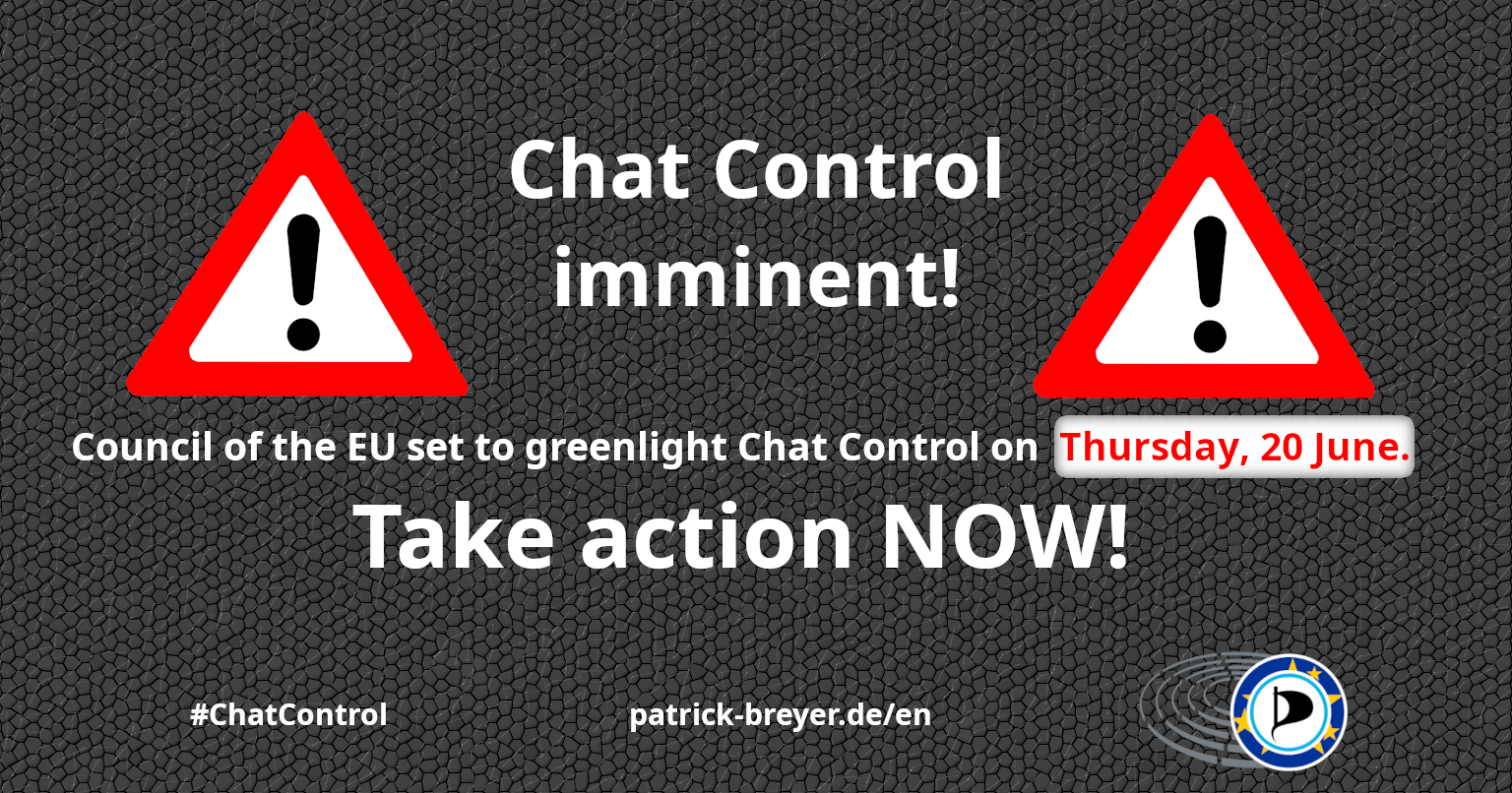Pirate lawsuit: German Regional Court refuses to rule on legality of voluntary chat control scanning of private messages
Shortly before the European Parliament is to extend the voluntary chat control bulk scanning of private messages by US services such as Facebook, Instagram, or Gmail by two years, the Regional Court of Kiel rejected in first instance a lawsuit filed by Pirate MEP Patrick Breyer to stop the scanning by Meta. The court reasoned cited formal grounds, suggesting that Mr. Breyer could avoid chat control by manually activating end-to-end encryption in his Facebook chats. Additionally, it held that Mr. Breyer could “not pursue a political campaign … in the context of civil proceedings”. Mr. Breyer has announced that he will appeal the decision:
“I am now appealing to the Higher Regional Court to push Meta to encrypt chats by default and to stop the indiscriminate chat control scanning by other providers as a violation of our right to digital privacy of correspondence. During the trial, Zuckerberg’s Meta group did everything in its power to prevent a ruling on the legality of its arbitrary bulk scanning. They will not succeed in the long term.” Mr. Breyer also refers to the pending, parallel lawsuit brought by a victim of child sexual abuse before the Passau Regional Court, which is supported by the Gesellschaft für Freiheitsrechte (Society for Civil Liberties).
“It makes me furious that private US corporations want to self-police our personal messages. This Big Brother attack on our mobile phones, private messages, and photos using error-prone algorithms is as if the post office opened and scanned all letters – ineffective and illegal. Victims of child sexual abuse have long criticised the fact that bulk chat control scanning harms them by destroying safe spaces for self-help, therapy, and counselling. Flooding our already overburdened police investigators with oftentimes false machine denunciations and thereby reducing capacities for targeted investigations against the people committing the abuse has nothing to do with efficiency. Organised ‘child porn rings’ do not use unencrypted messenger services. The main consequence of chat control is the mass criminalisation of young people because of careless chat messages they sent or consensual sexting – which is the opposite of child protection”. Mr. Breyer refers to German police crime statistics published yesterday, according to which almost 40% of suspects for “child pornography” offences last year were minors.
Meanwhile, the EU interior ministers are discussing a globally unique follow-up regulation (Chat Control 2.0), which is intended to make chat control mandatory and destroy secure end-to-end encryption.

